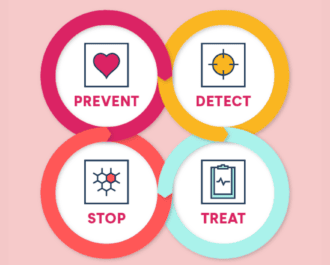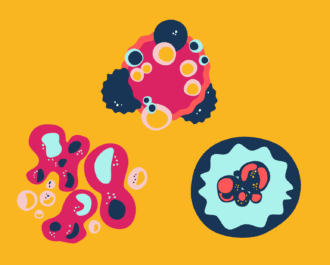
Researchers have found out for the first time why breast cancer drugs stop working in some patients.
Breast cancer is the most common life-threatening disease affecting Australian women, and although research has significantly increased the survival rate over the past few decades, eight women a day still die from the disease. Many of these deaths are due to treatments no longer working, which give cancer the opportunity to return and spread to other parts of the body – a process called metastasis.
About 70 per cent of all breast cancers are ER positive which means the cancer cells contain a receptor for the female hormone estrogen. It’s this hormone which fuels the tumour growth and treatments such as tamoxifen and aromatase inhibitors have been developed to block the production of estrogen and thus stop tumour growth.
But in about a third of cases, the estrogen-blocking treatment stops working. New research published in the journal Nature Genetics has revealed that some breast tumours are able to evolve and adapt to make their own fuel supply, which essentially renders the treatments powerless.
The researchers found that in patients taking aromatase inhibitors the tumours increased production of aromatase in the cancer cells, effectively producing their own estrogen – a process which can’t be blocked with current treatments.
The study of 150 breast cancer patients could be hugely significant for better treatment of breast cancer. That’s because currently, when an aromatase inhibitor stops working in a patient, doctors will usually just try another aromatase inhibitor. The new findings suggest that this could be pointless for some women.
Instead, if more was known about their tumour’s adaptability, these women could be moved straight onto different treatments which could help save their lives. Experts are now working on a test to see if a woman’s tumour has started to increase aromatase production and make its own estrogen, so doctors can recommend alternative treatments.
More News Articles
View all News


